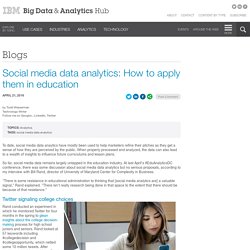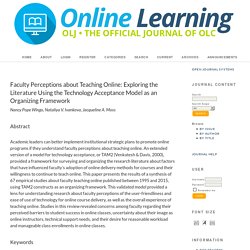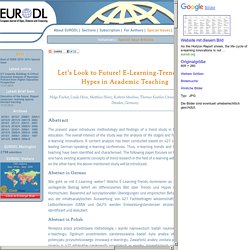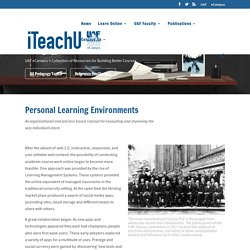

Next Skills. Vorbild Pusteblume – Was Lehre vom Löwenzahn lernen kann. Konstruktive Disruption statt Evolution. Social media data analytics: How to apply them in education. To date, social media data anaytics have mostly been used to help marketers refine their pitches as they get a sense of how they are perceived by the public.

When properly processed and analyzed, the data can also lead to a wealth of insights to influence future curriciulums and lesson plans. So far, social media data remains largely untapped in the education industry. At last April's #EduAnalyticsDC conference, there was some discussion about social media data analytics but no serious proposals, according to my interview with Bill Rand, director of University of Maryland Center for Complexity in Business. "There is some resistance in educational administration to thinking that [social media analytics are] a valuable signal," Rand explained. "There isn't really research being done in that space to the extent that there should be because of that resistance. " Twitter signaling college choices Social data applications for K-12 Analytics use by colleges. Faculty Perceptions about Teaching Online: Exploring the Literature Using the Technology Acceptance Model as an Organizing Framework.
Adkins, J., Kenkel, C., & Lim, C. (2005).

Deterrents to online academic dishonesty. The Journal of Learning in Higher Education, 1(1), 17-22. Retrieved from Alexander, J., Polyakova-Norwood, V., Johnston, L., Christensen, P., & Loquist, R. (2003). Collaborative development and evaluation of an online nursing course. Allen, I. Allen, I. Allen, I. Allen, I. Alsofyani, M., Aris, B., Eynon, R., & Majid, N. (2012). Arend, B. (2009). Arif, A. (2001). Bacow, L., Bowen, W., Guthrie, K., Lack, K., & Long, M. (2012). Kreieren statt unterwerfen. In der neuen Ausgabe der Zeitschrift für Hochschulentwicklung (ZFHE) findet sich ein interessanter Text zum Thema Digitalisierungsstrategien an Hochschulen.

Barbara Getto und Michael Kerres stellen die Frage, woran sich die heute an Hochschulen entweder bereits bestehenden oder gerade entstehenden Digitalisierungsbemühungen orientieren: daran, die Hochschule und speziell die Hochschullehre zu „modernisieren“ oder sich in der Region, im Bundesland oder bundesweit oder gar international zu „profilieren“? Die Autoren nutzen die Unterscheidung von Organisation und Institution (siehe dazu auch hier), um die verschiedenen Richtungen zu erklären „Bei der Einführung digitaler Technik folgen Akteurinnen/Akteure – zumeist implizit – einer Vorstellung von Hochschule als Institution oder als Organisation.
Ein institutionelles Verständnis von Hochschule würde die Digitalisierung eher als einen allgemeinen Modernisierungstrend auffassen, der weitgehend gleichförmig einzuführen ist. Diruptiv didaktik - Recherche Google. Google-Ergebnis für. Bilder Website mit diesem Bild As the Horizon Report shows, the life cycle of e-learning innovations is not ... eurodl.org BildersucheÄhnliche Bilder Die Bilder sind eventuell urheberrechtlich geschützt.

Untitled. After the advent of web 2.0, (interactive, responsive, and user editable web content) the possibility of conducting academic course work online began to become more feasible.

One approach was provided by the rise of Learning Management Systems. These systems provided the online equivalent of managed classrooms in the traditional university setting. At the same time the thriving market place produced a swarm of social media apps, journaling sites, cloud storage and different means to share with others. A great collaboration began. As new apps and technologies appeared they each had champions, people who were first wave users. Educators began to use terms like “Personal Learning Networks’ and “Personal Learning Environments’ (PLE). E-Learning 24/7 Blog.